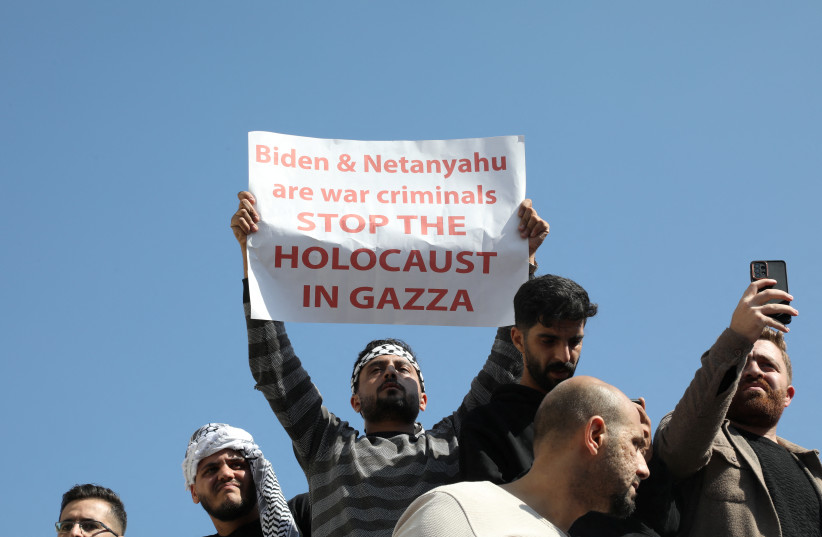Iran’s regime has mobilized its media machine quickly, after Hamas claimed an explosion at a hospital in Gaza had led to hundreds of deaths from an Israeli airstrike. It is now known, and widely accepted, that the claims of an “attack” or “strike” were disinformation spread by Hamas. It is also believed the number of casualties cited by Hamas was inflated. However, it is also clear that Iranian regime media worked hard to push this narrative in the region to inflame hatred.
And these outlets were not the only ones working that angle. In Turkey, protests were organized and incitement grew against Israel. This effort spanned the region, from Turkey to Iran, Qatar and also to Russia, with the goal of using the incident to increase tensions and heat up the region.
Wild comparisons and nonsensical conclusions
Two days after the attack, Iran’s regime continued to push this narrative. For instance, on Thursday, Fars News claimed that the incident at the hospital was similar to crimes committed by Saddam Hussein, a bizarre claim, considering the fact that Saddam’s regime was a major opponent of Israel and even fired missiles towards Tel Aviv in 1991.
Yet Iran’s regime also opposed Saddam. So, linking Israel to Iraq’s crimes in the 1980s is part of Tehran’s propaganda. Other media in Iran used graphic images, including of children, to promote its claim that “1,000” people had been killed at the hospital. There is no evidence of this.
Tehran clearly believes that its disinformation narrative can influence the region. However, almost two days after the protests began in the region, many countries seem to agree that the attack did not happen the way Hamas claimed it did.

Iran also tried to push antisemitic dog whistles in its coverage, calling Israel “demonic” and “bloodthirsty.” Iran’s Tasnim news agency showed an image of US President Joe Biden visiting Israel and wearing a yarmulke, to illustrate the wider narrative from Tehran that portrays the US and Israel as one and the same.
Iran has also tried to fuel attacks on the US in Iraq and in Lebanon, part of a wider attempt to stir anger at the US and Israel. This worked on Wednesday, when leaders canceled meetings with Biden and also fueled protests in Turkey.
Pro-Iranian media Al-Mayadeen also continued to have manipulative coverage on the hospital incident on Thursday. The continued coverage, which has messaging that is linked to language used by Iran’s leaders, shows an attempt to skew the regional reporting on the story.
